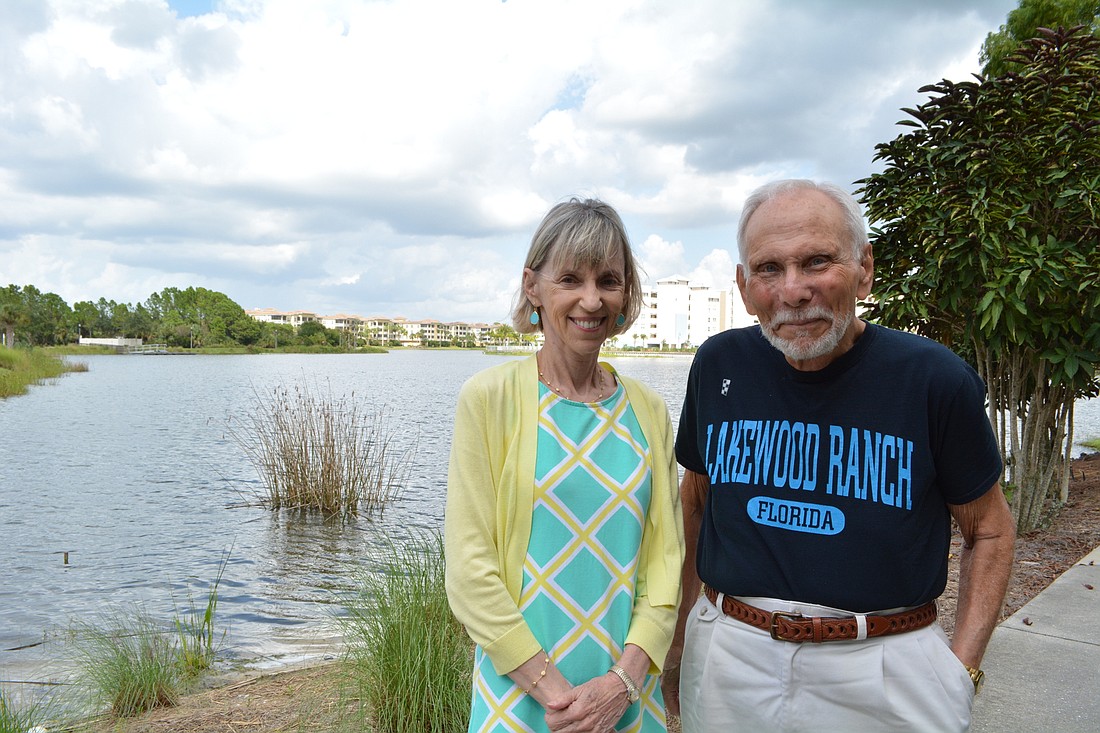- November 16, 2024
-
-
Loading

Loading

Pam Eubanks
Senior Editor
Some condominium homeowners in Lakewood Ranch say they are paying more than their fair share of community expenses.
Watercrest, Moorings at Edgewater, Waterfront at Main Street, Boca Grove and Miramar are condominium projects located within the boundaries of Lakewood Ranch Community Development District 2.
Although cost allocations vary, the neighborhoods have residents who say their contributions to the district’s operation and maintenance expenses are disproportional to their benefits.
Watercrest resident Stan Schuer is one of them.
“I do believe in my heart the condos are being overcharged,” Schuer said. “We stand alone. We take care of our own roads. We don’t rely on the CDD or even the homeowners association. I understand we are part of CDD and we have to pay what is ‘fair.’ That’s the word I want to use.”
Watercrest resident Carole Bernard agreed.
“The way the allocations are made right now is so unfair,” she said. “Would you want to pay for your neighbor’s cruise?… In essence, we’re subsidizing what other owners are being able to spend their money on.”
Supervisors of Lakewood Ranch Community Development District 2 held their first of several anticipated workshops Oct. 2 meant to determine whether assessments are unfair and make appropriate remedies. In the coming months, the board will review expenses by category and item to determine if there are more appropriate ways to distribute those costs.
About 20 residents attended the workshop, although more than 50 attended the district’s budget adoption hearing in August because of the issue.
Much of the discussion centers on the assessment concept of an equivalent dwelling unit. It assigns values for condos, single-family homes and commercial properties to make them “equivalent” for taxing purposes.
In District 2, condominium units account for 40% of the 1,813 EDUs — 1,641 residences and 172 commercial properties. Condo owners pay from about $400 to $1,160 annually, depending on neighborhood and unit. Single-family home assessments range from about $2,000 to $3,400.
Watercrest resident Kathleen Grant argued although condo projects have their own gates, roadways and community managers, they pay 40% of the district’s costs for Lakewood Ranch Town Hall and operations department personnel under the EDU concept. Some residents say that’s too much since they do not rely on Town Hall services the way single-family homeowners do.
For example, operations has to deal with issues such as palm fronds littering the area. The condo owners already pay for their own landscaping.
“It’s not fair or reasonable 40% of these costs are allocated to the condominiums,” Grant said.
Not all district expenses are shared with condos. For example, most of the condo communities do not contribute to the maintenance of Country Club at Lakewood Ranch roads because they do not have direct access to them. Lift stations are another item for which condos don’t contribute.
Supervisor Tom Green said in 2010, the board spent time with representatives of Boca Grove and Miramar and ultimately made methodology changes to better align assessments with benefits.
“I personally think that the methodology we’ve used is right,” Green said. “It can be tweaked based on your concerns. We can look at individual cost elements where you think you’re being overcharged, but to scrap a methodology we’ve been using for 18 years doesn’t make sense to me. We’re more than willing to consider changes, but we’d like to do them in the most efficient way that we can.”
CDD 2 Chairman Pete Bokach said the board will evaluate concerns, but ultimately it’s a balancing act to determine what is most appropriate because the district’s needs change over time.
“We’re part of a community,” Bokach said. “There are times staff has to focus on some area that may have more of a benefit to one area and may not benefit other areas. The focus continually changes.”
Schuer said he liked the progress being made and the process for evaluating assessments.
“It’s a good starting point,” Schuer said. “There’s a lot of details to be worked out.”